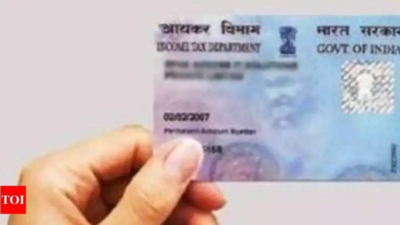Government Intensifies Efforts to Safeguard PAN Data Access
In a decisive move, the Indian government is tightening its grip on unauthorized access to citizens’ personal information through the misuse of Permanent Account Number (PAN) data. This crackdown, initiated by the Union Home Ministry, aims to halt the unethical practices employed by various fintech and consumer tech companies that leverage PAN data to glean sensitive details such as names, addresses, and phone numbers.
The directive from the Union Home Ministry signifies a robust approach towards enhancing digital privacy protection across the country. According to sources familiar with the situation, this initiative is being led by the Indian Cybercrime Coordination Centre (I4C), which specifically targets what is being referred to as “PAN enrichment” services. These services have, until now, permitted unauthorized access to personal data through backend systems managed by the Income Tax department.
 Strengthening digital privacy in India
Strengthening digital privacy in India
Several executives from the industry, who wish to remain anonymous, have confirmed that operations related to these unauthorized services have experienced significant disruptions over the past few weeks. This crackdown serves as a precursor to the imminent implementation of the Digital Personal Data Protection Act, 2023 (DPDP), ensuring a structured approach towards data privacy.
“Most consumer lending platforms and credit aggregators used this unauthorized service extensively,” noted a fintech insider, emphasizing the widespread reliance on these illicit practices. While not considered an outright data leak, this misuse highlights serious concerns regarding the unauthorized access of government databases.
The legitimate means of PAN verification through the National Securities Depository (NSDL) remains untouched by this move. This authorized channel is designed to solely confirm that the submitted details match with its database, without disclosing any personal information.
This action aligns with the National Payments Corporation of India’s earlier decision to terminate unauthorized access related to Unified Payments Interface (UPI) data. Experts suggest that these recent measures are part of a broader governmental strategy aimed at enforcing stringent data protection regulations.
Industry observers recall the pivotal Supreme Court ruling on Aadhaar, which significantly reshaped database access protocols. The same rigor is now being applied to all government databases, a shift noted by industry executives who see value in these changes.
“After the Supreme Court judgement on Aadhaar, the rules around database access became more formalized. The government is now extending this to all government databases, " remarked one industry expert.
While the ongoing enforcement may pose short-term operational challenges, many in the industry are optimistic. They believe these efforts will usher in a standardized approach to data protection as the DPDP Act approaches its implementation date.
In an era where personal data privacy is paramount, the Indian government’s initiative could set a precedent for stricter controls and a more secure digital environment for its citizens. As reliance on technology intensifies, the emphasis on validating and regulating data access has never been more crucial. With ongoing developments in data legislation and enforcement, it is evident that aligning fintech operations with compliance measures is not just advisable but necessary.



 Photo by
Photo by 











